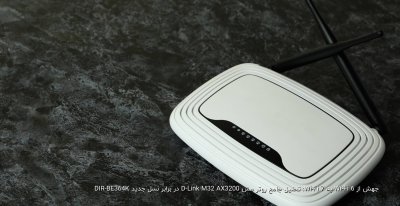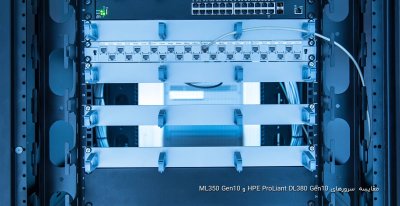/****************************** Module Header ******************************\
* Module Name: kbd.h
*
* Copyright (c) 1985-91, Microsoft Corporation
*
* Keyboard table values that form the basis for languages and keyboard types.
* The basis is US, kbd type 4 - all others are a variation on this.
* This file is included by all kbd**.h files.
*
* History:
* 10-Jan-1991 GregoryW
* 23-Apr-1991 IanJa VSC_TO_VK _* macros from oemtab.c
\***************************************************************************/
#ifndef _KBD_
#define _KBD_
/****************************************************************************\
*
* Keyboard Layers. Used in kdb??.dll and in usersrv.dll
*
\****************************************************************************/
/*
* Key Event (KE) structure
* Stores a Virtual Key event
*/
typedef struct tagKE {
union {
BYTE bScanCode; // Virtual Scan Code (Set 1)
WCHAR wchInjected; // Unicode char from SendInput()
};
USHORT usFlaggedVk; // Vk | Flags
DWORD dwTime; // time in milliseconds
} KE, *PKE;
typedef BOOL (* KEPROC)(PKE pKe);
/*
* KE.usFlaggedVk values, also used in the keyboard layer tables.
*/
#define KBDEXT (USHORT)0x0100
#define KBDMULTIVK (USHORT)0x0200
#define KBDSPECIAL (USHORT)0x0400
#define KBDNUMPAD (USHORT)0x0800
#define KBDUNICODE (USHORT)0x1000
#define KBDINJECTEDVK (USHORT)0x2000
#define KBDBREAK (USHORT)0x8000
/*
* Key message lParam bits
*/
#define EXTENDED_BIT 0x01000000
#define DONTCARE_BIT 0x02000000
#define FAKE_KEYSTROKE 0x02000000
#define ALTNUMPAD_BIT 0x04000000 // copied from windows\inc\wincon.w
/*
* Keyboard Shift State defines. These correspond to the bit mask defined
* by the VkKeyScan() API.
*/
#define KBDBASE 0
#define KBDSHIFT 1
#define KBDCTRL 2
#define KBDALT 4
// three symbols KANA, ROYA, LOYA are for FE
#define KBDKANA 8
#define KBDROYA 0x10
#define KBDLOYA 0x20
#define KBDGRPSELTAP 0x80
/*
* Handy diacritics
*/
#define GRAVE 0x0300
#define ACUTE 0x0301
#define CIRCUMFLEX 0x0302
#define TILDE 0x0303
#define MACRON 0x0304
#define OVERSCORE 0x0305
#define BREVE 0x0306
#define DOT_ABOVE 0x0307
#define UMLAUT 0x0308
#define DIARESIS UMLAUT
#define HOOK_ABOVE 0x0309
#define RING 0x030A
#define DOUBLE_ACUTE 0x030B
#define HACEK 0x030C
#define CEDILLA 0x0327
#define OGONEK 0x0328
#define TONOS 0x0384
#define DIARESIS_TONOS 0x0385
#define wszGRAVE L"\x0300"
#define wszACUTE L"\x0301"
#define wszCIRCUMFLEX L"\x0302"
#define wszTILDE L"\x0303"
#define wszMACRON L"\x0304"
#define wszOVERSCORE L"\x0305"
#define wszBREVE L"\x0306"
#define wszDOT_ABOVE L"\x0307"
#define wszUMLAUT L"\x0308"
#define wszHOOK_ABOVE L"\x0309"
#define wszRING L"\x030A"
#define wszDOUBLE_ACUTE L"\x030B"
#define wszHACEK L"\x030C"
#define wszCEDILLA L"\x0327"
#define wszOGONEK L"\x0328"
#define wszTONOS L"\x0384"
#define wszDIARESIS_TONOS L"\x0385"
#define IDS_FROM_SCANCODE(prefix, base) \
(0xc000 + ((0x ## prefix) >= 0xE0 ? 0x100 : 0) + (0x ## base))
/***************************************************************************\
* MODIFIER KEYS
*
* All keyboards have "Modifier" keys which are used to alter the behaviour of
* some of the other keys. These shifter keys are usually:
* Shift (left and/or right Shift key)
* Ctrl (left and/or right Ctrl key)
* Alt (left and/or right Alt key)
* AltGr (right Alt key only)
*
* NOTE:
* All keyboards use the Shift key.
* All keyboards use a Ctrl key to generate ASCII control characters.
* All keyboards with a number pad use the Alt key and the NumPad to
* generate characters by number.
* Keyboards using AltGr as a Modifier Key usually translate the Virtual
* ScanCode to Virtual Keys VK_CTRL + VK_ALT at input time: the Modifier
* tables should be written to treat Ctrl + Alt as a valid shifter
* key combination in these cases.
*
* By holding down 0 or more of these Modifier keys, a "shift state" is
* obtained : the shift state may affect the translation of Virtual Scancodes
* to Virtual Keys and/or the translation of Virtuals Key to Characters.
*
* EXAMPLES:
*
* Each key on a particular keyboard may be marked with up to five different
* characters in five different positions:
*
* .-------.
* /| |\
* : | 2 4 | :
* | | | |
* | | | |
* | | 1 3 | |
* | |_______| |
* | / \ |
* |/ 5 \|
* `-----------'
*
* A key may also be able to generate a character that is not marked on it:
* these are ASCII Control chars, lower-case letters and/or "invisible keys".
* .-------.
* An example of an "Invisible Key": /| |\
* : | > | :
* The German M24 keyboard 2 should produce the | | | |
* '|' character when ALT SHIFT is is held down | | | |
* while the '<' key (shown here) is pressed: | | < \ | |
* This keyboard has four other invisible | |_______| |
* characters. France, Italy and Spain also | / \ |
* support invisible characters on the M24 |/ \|
* Keyboard 2 with ALT SHIFT depressed. `-----------'
*
* The keyboard table must list the keys that contribute to it's shift state,
* and indicate which combinations are valid. This is done with
* aCharModifiers[] - convert combinations of Modifier Keys to Bitmasks.
* and
* aModification[]; - convert Modifier Bitmasks to enumerated Modifications
*
* AN EXAMPLE OF VALID AND INVALID MODIFIER KEY COMBINATIONS
*
* The US English keyboard has 3 Modifier keys:
* Shift (left or right); Ctrl (left or right); and Alt (left or right).
*
* The only valid combinations of these Modifier Keys are:
* none pressed : Character at position (1) on the key.
* Shift : Character at position (2) on the key.
* Ctrl : Ascii Control characters
* Shift + Ctrl : Ascii Control characters
* Alt : Character-by-number on the numpad
*
* The invalid combinations (that do not generate any characters) are:
* Shift + Alt
* Alt + Ctrl
* Shift + Alt + Ctrl
*
* Something (???) :
* -----------------
* Modifier keys Character produced
* ------------------------- ------------------
* 0 No shifter key depressed position 1
* 1 Shift key is depressed position 2
* 2 AltGr (r.h. Alt) depressed position 4 or 5 (whichever is marked)
*
* However, note that 3 shifter keys (SHIFT, can be combined in a
* characters, depending on the Keyboards
* Consider the following keyboards:
*
* .-------. STRANGE KBD PECULIAR KBD
* /| |\ ================== ==================
* : | 2 4 | : 1 -
* | | | | 2 - SHIFT SHIFT
* | | | | 3 - MENU MENU
* | | 1 3 | | 4 - SHIFT + MENU SHIFT + MENU
* | |_______| | 5 - no such keys CTRL + MENU
* | / \ |
* |/ 5 \|
* `-----------'
* Both STRANGE and PECULIAR keyboards could have aVkToBits[] =
* { VK_SHIFT , KBDSHIFT }, // 0x01
* { VK_CONTROL, KBDCTRL }, // 0x02
* { VK_MENU , KBDALT }, // 0x04
* { 0, 0 }
*
* The STRANGE keyboard has 4 distinct shift states, while the PECULIAR kbd
* has 5. However, note that 3 shifter bits can be combined in a
* total of 2^3 == 8 ways. Each such combination must be related to one (or
* none) of the enumerated shift states.
* Each shifter key combination can be represented by three binary bits:
* Bit 0 is set if VK_SHIFT is down
* Bit 1 is set if VK_CONTROL is down
* Bit 2 is set if VK_MENU is down
*
* Example: If the STRANGE keyboard generates no characters in combination
* when just the ALT key is held down, nor when the SHIFT, CTRL and ALT keys
* are all held down, then the tables might look like this:
*
* VK_MENU,
* VK_CTRL, 0
* };
* aModification[] = {
* 0, // 0 0 0 = 000 <none>
* 1, // 0 0 1 = 001 SHIFT
* SHFT_INVALID, // 0 1 0 = 010 ALT
* 2, // 0 1 1 = 011 SHIFT ALT
* 3, // 1 0 0 = 100 CTRL
* 4, // 1 0 1 = 101 SHIFT CTRL
* 5, // 1 1 0 = 110 CTRL ALT
* SHFT_INVALID // 1 1 1 = 111 SHIFT CTRL ALT
* };
*
*
\***************************************************************************/
/***************************************************************************\
* VK_TO_BIT - associate a Virtual Key with a Modifier bitmask.
*
* Vk - the Virtual key (eg: VK_SHIFT, VK_RMENU, VK_CONTROL etc.)
* Special Values:
* 0 null terminator
* ModBits - a combination of KBDALT, KBDCTRL, KBDSHIFT and kbd-specific bits
* Any kbd-specific shift bits must be the lowest-order bits other
* than KBDSHIFT, KBDCTRL and KBDALT (0, 1 & 2)
*
* Those languages that use AltGr (VK_RMENU) to shift keys convert it to
* CTRL+ALT with the KBDSPECIAL bit in the ausVK[] entry for VK_RMENU
* and by having an entry in aVkToPfnOem[] to simulate the right Vk sequence.
*
\***************************************************************************/
typedef struct {
BYTE Vk;
BYTE ModBits;
} VK_TO_BIT, *PVK_TO_BIT;
/***************************************************************************\
* pModNumber - a table to map shift bits to enumerated shift states
*
* Table attributes: Ordered table
*
* Maps all possible shifter key combinations to an enumerated shift state.
* The size of the table depends on the value of the highest order bit used
* in aCharModifiers[*].ModBits
*
* Special values for aModification[*]
* SHFT_INVALID - no characters produced with this shift state.
LATER: (ianja) no SHFT_CTRL - control characters encoded in tables like others
* SHFT_CTRL - standard control character production (all keyboards must
* be able to produce CTRL-C == 0x0003 etc.)
* Other - enumerated shift state (not less than 0)
*
* This table is indexed by the Modifier Bits to obtain an Modification Number.
*
* CONTROL MENU SHIFT
*
* aModification[] = {
* 0, // 0 0 0 = 000 <none>
* 1, // 0 0 1 = 001 SHIFT
* SHFT_INVALID, // 0 1 0 = 010 ALT
* 2, // 0 1 1 = 011 SHIFT ALT
* 3, // 1 0 0 = 100 CTRL
* 4, // 1 0 1 = 101 SHIFT CTRL
* 5, // 1 1 0 = 110 CTRL ALT
* SHFT_INVALID // 1 1 1 = 111 SHIFT CTRL ALT
* };
*
\***************************************************************************/
typedef struct {
PVK_TO_BIT pVkToBit; // Virtual Keys -> Mod bits
WORD wMaxModBits; // max Modification bit combination value
BYTE ModNumber[]; // Mod bits -> Modification Number
} MODIFIERS, *PMODIFIERS;
WORD GetModifierBits(PMODIFIERS pModifiers, LPBYTE afKeyState);
WORD GetModificationNumber(PMODIFIERS pModifiers, WORD wModBits);
// FE Modifiers_VK
extern PMODIFIERS gpModifiers_VK;
extern MODIFIERS Modifiers_VK_STANDARD;
extern MODIFIERS Modifiers_VK_IBM02;
#define SHFT_INVALID 0x0F
/***************************************************************************\
* apulCvt_VK[] - obtain VK translation table from shift state
* A VK translation table is used to change the value of the Virtual Key
* according to the shift state. OEM only (not locale-specific)
\***************************************************************************/
extern PULONG *gapulCvt_VK;
extern ULONG *gapulCvt_VK_101[];
extern ULONG *gapulCvt_VK_84[];
// gapulCvt_VK_IBM02[] is for FE
extern ULONG *gapulCvt_VK_IBM02[];
/***************************************************************************\
* awNumPadCvt[] - Translate cursor movement keys to numpad keys
\***************************************************************************/
extern MODIFIERS Modifiers_VK;
extern BYTE aVkNumpad[];
/***************************************************************************\
* VSC_VK - Associate a Virtual Scancode with a Virtual Key
* Vsc - Virtual Scancode
* Vk - Virtual Key | flags
* Used by VKFromVSC() for scancodes prefixed 0xE0 or 0xE1
\***************************************************************************/
typedef struct _VSC_VK {
BYTE Vsc;
USHORT Vk;
} VSC_VK, *PVSC_VK;
/***************************************************************************\
* VK_VSC - Associate a Virtual Key with a Virtual Scancode
* Vk - Virtual Key
* Vsc - Virtual Scancode
* Used by MapVirtualKey for Virtual Keys not appearing in ausVK[]
\***************************************************************************/
typedef struct _VK_VSC {
BYTE Vk;
BYTE Vsc;
} VK_VSC, *PVK_VSC;
/***************************************************************************\
*
* VK_TO_WCHARS<n> - Associate a Virtual Key with <n> UNICODE characters
*
* VirtualKey - The Virtual Key.
* wch[] - An array of characters, one for each shift state that
* applies to the specified Virtual Key.
*
* Special values for VirtualKey:
* -1 - This entry contains dead chars for the previous entry
* 0 - Terminates a VK_TO_WCHARS[] table
*
* Special values for Attributes:
* CAPLOK - The CAPS-LOCK key affects this key like SHIFT
* SGCAPS - CapsLock uppercases the unshifted char (Swiss-German)
*
* Special values for wch[*]:
* WCH_NONE - No character is generated by pressing this key with the
* current shift state.
* WCH_DEAD - The character is a dead-key: the next VK_TO_WCHARS[] entry
* will contain the values of the dead characters (diaresis)
* that can be produced by the Virtual Key.
* WCH_LGTR - The character is a ligature. The characters generated by
* this keystroke are found in the ligature table.
*
\***************************************************************************/
#define WCH_NONE 0xF000
#define WCH_DEAD 0xF001
#define WCH_LGTR 0xF002
#define CAPLOK 0x01
#define SGCAPS 0x02
#define CAPLOKALTGR 0x04
// KANALOK is for FE
#define KANALOK 0x08
#define GRPSELTAP 0x80
/*
* Macro for VK to WCHAR with "n" shift states
*/
#define TYPEDEF_VK_TO_WCHARS(n) typedef struct _VK_TO_WCHARS##n { \
BYTE VirtualKey; \
BYTE Attributes; \
WCHAR wch[n]; \
} VK_TO_WCHARS##n, *PVK_TO_WCHARS##n;
/*
* To facilitate coding the table scanning routine.
*/
/*
* Table element types (for various numbers of shift states), used
* to facilitate static initializations of tables.
* VK_TO_WCHARS1 and PVK_TO_WCHARS1 may be used as the generic type
*/
TYPEDEF_VK_TO_WCHARS(1) // VK_TO_WCHARS1, *PVK_TO_WCHARS1;
TYPEDEF_VK_TO_WCHARS(2) // VK_TO_WCHARS2, *PVK_TO_WCHARS2;
TYPEDEF_VK_TO_WCHARS(3) // VK_TO_WCHARS3, *PVK_TO_WCHARS3;
TYPEDEF_VK_TO_WCHARS(4) // VK_TO_WCHARS4, *PVK_TO_WCHARS4;
TYPEDEF_VK_TO_WCHARS(5) // VK_TO_WCHARS5, *PVK_TO_WCHARS5;
TYPEDEF_VK_TO_WCHARS(6) // VK_TO_WCHARS6, *PVK_TO_WCHARS5;
TYPEDEF_VK_TO_WCHARS(7) // VK_TO_WCHARS7, *PVK_TO_WCHARS7;
// these three (8,9,10) are for FE
TYPEDEF_VK_TO_WCHARS(8) // VK_TO_WCHARS8, *PVK_TO_WCHARS8;
TYPEDEF_VK_TO_WCHARS(9) // VK_TO_WCHARS9, *PVK_TO_WCHARS9;
TYPEDEF_VK_TO_WCHARS(10) // VK_TO_WCHARS10, *PVK_TO_WCHARS10;
/***************************************************************************\
*
* VK_TO_WCHAR_TABLE - Describe a table of VK_TO_WCHARS1
*
* pVkToWchars - points to the table.
* nModifications - the number of shift-states supported by this table.
* (this is the number of elements in pVkToWchars[*].wch[])
*
* A keyboard may have several such tables: all keys with the same number of
* shift-states are grouped together in one table.
*
* Special values for pVktoWchars:
* NULL - Terminates a VK_TO_WCHAR_TABLE[] list.
*
\***************************************************************************/
typedef struct _VK_TO_WCHAR_TABLE {
PVK_TO_WCHARS1 pVkToWchars;
BYTE nModifications;
BYTE cbSize;
} VK_TO_WCHAR_TABLE, *PVK_TO_WCHAR_TABLE;
/***************************************************************************\
*
* Dead Key (diaresis) tables
*
* LATER IanJa: supplant by an NLS API that composes Diacritic+Base -> WCHAR
*
\***************************************************************************/
typedef struct {
DWORD dwBoth; // diacritic & char
WCHAR wchComposed;
USHORT uFlags;
} DEADKEY, *PDEADKEY;
#define DEADTRANS(ch, accent, comp, flags) { MAKELONG(ch, accent), comp, flags}
/*
* Bit values for uFlags
*/
#define DKF_DEAD 0x0001
/***************************************************************************\
*
* Ligature table
*
\***************************************************************************/
/*
* Macro for ligature with "n" characters
*/
#define TYPEDEF_LIGATURE(n) typedef struct _LIGATURE##n { \
BYTE VirtualKey; \
WORD ModificationNumber; \
WCHAR wch[n]; \
} LIGATURE##n, *PLIGATURE##n;
/*
* To facilitate coding the table scanning routine.
*/
/*
* Table element types (for various numbers of ligatures), used
* to facilitate static initializations of tables.
*
* LIGATURE1 and PLIGATURE1 are used as the generic type
*/
TYPEDEF_LIGATURE(1) // LIGATURE1, *PLIGATURE1;
TYPEDEF_LIGATURE(2) // LIGATURE2, *PLIGATURE2;
TYPEDEF_LIGATURE(3) // LIGATURE3, *PLIGATURE3;
TYPEDEF_LIGATURE(4) // LIGATURE4, *PLIGATURE4;
TYPEDEF_LIGATURE(5) // LIGATURE5, *PLIGATURE5;
/***************************************************************************\
* VSC_LPWSTR - associate a Virtual Scancode with a Text string
*
* Uses:
* GetKeyNameText(), aKeyNames[] Map virtual scancode to name of key
*
\***************************************************************************/
typedef struct {
BYTE vsc;
LPWSTR pwsz;
} VSC_LPWSTR, *PVSC_LPWSTR;
/*
* Along with ligature support we're adding a proper version number.
* The previous version number (actually just unused bits...) was
* always zero. The version number will live in the high word of
* fLocaleFlags.
*/
#define KBD_VERSION 1
#define GET_KBD_VERSION(p) (HIWORD((p)->fLocaleFlags))
/*
* Attributes such as AltGr, LRM_RLM, ShiftLock are stored in the the low word
* of fLocaleFlags (layout specific) or in gdwKeyboardAttributes (all layouts)
*/
#define KLLF_ALTGR 0x0001
#define KLLF_SHIFTLOCK 0x0002
#define KLLF_LRM_RLM 0x0004
/*
* Some attributes are per-layout (specific to an individual layout), some
* attributes are per-user (apply globally to all layouts). Some are both.
*/
#define KLLF_LAYOUT_ATTRS (KLLF_SHIFTLOCK | KLLF_ALTGR | KLLF_LRM_RLM)
#define KLLF_GLOBAL_ATTRS (KLLF_SHIFTLOCK)
/*
* Flags passed in to the KeyboardLayout API (KLF_*) as can be converted to
* internal (KLLF_*) attributes:
*/
#define KLL_ATTR_FROM_KLF(x) ((x) >> 15)
#define KLL_LAYOUT_ATTR_FROM_KLF(x) (KLL_ATTR_FROM_KLF(x) & KLLF_LAYOUT_ATTRS)
#define KLL_GLOBAL_ATTR_FROM_KLF(x) (KLL_ATTR_FROM_KLF(x) & KLLF_GLOBAL_ATTRS)
/*
* If KLF_SHIFTLOCK & KLF_LRM_RLM are defined, we can check the KLLF_* values
*/
#ifdef KLF_SHIFTLOCK
#if KLLF_SHIFTLOCK != KLL_ATTR_FROM_KLF(KLF_SHIFTLOCK)
#error KLLF_SHIFTLOCK != KLL_ATTR_FROM_KLF(KLF_SHIFTLOCK)
#endif
#endif // KLF_SHIFTLOCK
#ifdef KLF_LRM_RLM
#if KLLF_LRM_RLM != KLL_ATTR_FROM_KLF(KLF_LRM_RLM)
#error KLLF_LRM_RLM != KLL_ATTR_FROM_KLF(KLF_LRM_RLM)
#endif
#endif // KLF_LRM_RLM
/***************************************************************************\
* KBDTABLES
*
* This structure describes all the tables that implement the keyboard layer.
*
* When switching to a new layer, we get a new KBDTABLES structure: all key
* processing tables are accessed indirectly through this structure.
*
\***************************************************************************/
typedef struct tagKbdLayer {
/*
* Modifier keys
*/
PMODIFIERS pCharModifiers;
/*
* Characters
*/
VK_TO_WCHAR_TABLE *pVkToWcharTable; // ptr to tbl of ptrs to tbl
/*
* Diacritics
*/
PDEADKEY pDeadKey;
/*
* Names of Keys
*/
VSC_LPWSTR *pKeyNames;
VSC_LPWSTR *pKeyNamesExt;
LPWSTR *pKeyNamesDead;
/*
* Scan codes to Virtual Keys
*/
USHORT *pusVSCtoVK;
BYTE bMaxVSCtoVK;
PVSC_VK pVSCtoVK_E0; // Scancode has E0 prefix
PVSC_VK pVSCtoVK_E1; // Scancode has E1 prefix
/*
* Locale-specific special processing
*/
DWORD fLocaleFlags;
/*
* Ligatures
*/
BYTE nLgMax;
BYTE cbLgEntry;
PLIGATURE1 pLigature;
} KBDTABLES, *PKBDTABLES;
/*
* OEM-specific special processing (keystroke simulators and filters)
*/
extern KEPROC aKEProcOEM[];
/*
* FarEast-specific special...
*/
typedef struct _VK_FUNCTION_PARAM {
BYTE NLSFEProcIndex;
ULONG NLSFEProcParam;
} VK_FPARAM, *PVK_FPARAM;
typedef struct _VK_TO_FUNCTION_TABLE {
BYTE Vk;
BYTE NLSFEProcType;
BYTE NLSFEProcCurrent;
// Index[0] : Base
// Index[1] : Shift
// Index[2] : Control
// Index[3] : Shift+Control
// Index[4] : Alt
// Index[5] : Shift+Alt
// Index[6] : Control+Alt
// Index[7] : Shift+Control+Alt
BYTE NLSFEProcSwitch; // 8 bits
VK_FPARAM NLSFEProc[8];
VK_FPARAM NLSFEProcAlt[8];
} VK_F, *PVK_F;
typedef struct tagKbdNlsLayer {
USHORT OEMIdentifier;
USHORT LayoutInformation;
UINT NumOfVkToF;
VK_F *pVkToF;
//
// The pusMouseVKey array provides a translation from the virtual key
// value to an index. The index is used to select the appropriate
// routine to process the virtual key, as well as to select extra
// information that is used by this routine during its processing.
// If this value is NULL, following default will be used.
//
// ausMouseVKey[] = {
// VK_CLEAR, // Numpad 5: Click active button
// VK_PRIOR, // Numpad 9: Up & Right
// VK_NEXT, // Numpad 3: Down & Right
// VK_END, // Numpad 1: Down & Left
// VK_HOME, // Numpad 7: Up & Left
// VK_LEFT, // Numpad 4: Left
// VK_UP, // Numpad 8: Up
// VK_RIGHT, // Numpad 6: Right
// VK_DOWN, // Numpad 2: Down
// VK_INSERT, // Numpad 0: Active button down
// VK_DELETE, // Numpad .: Active button up
// VK_MULTIPLY, // Numpad *: Select both buttons
// VK_ADD, // Numpad +: Double click active button
// VK_SUBTRACT, // Numpad -: Select right button
// VK_DEVIDE|KBDEXT, // Numpad /: Select left button
// VK_NUMLOCK|KBDEXT}; // Num Lock
//
INT NumOfMouseVKey;
USHORT *pusMouseVKey;
} KBDNLSTABLES, *PKBDNLSTABLES;
//
// OEM Ids - KBDNLSTABLES.OEMIdentifier
//
// PSS ID Number: Q130054
// Article last modified on 05-16-1995
//
// 3.10 1.20 | 3.50 1.20
// WINDOWS | WINDOWS NT
//
// ---------------------------------------------------------------------
// The information in this article applies to:
// - Microsoft Windows Software Development Kit (SDK) for Windows
// version 3.1
// - Microsoft Win32 Software Development Kit (SDK) version 3.5
// - Microsoft Win32s version 1.2
// ---------------------------------------------------------------------
// SUMMARY
// =======
// Because of the variety of computer manufacturers (NEC, Fujitsu, IBMJ, and
// so on) in Japan, sometimes Windows-based applications need to know which
// OEM (original equipment manufacturer) manufactured the computer that is
// running the application. This article explains how.
//
// MORE INFORMATION
// ================
// There is no documented way to detect the manufacturer of the computer that
// is currently running an application. However, a Windows-based application
// can detect the type of OEM Windows by using the return value of the
// GetKeyboardType() function.
//
// If an application uses the GetKeyboardType API, it can get OEM ID by
// specifying "1" (keyboard subtype) as argument of the function. Each OEM ID
// is listed here:
//
// OEM Windows OEM ID
// ------------------------------
// Microsoft 00H (DOS/V)
// all AX 01H
// EPSON 04H
// Fujitsu 05H
// IBMJ 07H
// Matsushita 0AH
// NEC 0DH
// Toshiba 12H
//
// Application programs can use these OEM IDs to distinguish the type of OEM
// Windows. Note, however, that this method is not documented, so Microsoft
// may not support it in the future version of Windows.
//
// As a rule, application developers should write hardware-independent code,
// especially when making Windows-based applications. If they need to make a
// hardware-dependent application, they must prepare the separated program
// file for each different hardware architecture.
//
// Additional reference words: 3.10 1.20 3.50 1.20 kbinf
// KBCategory: kbhw
// KBSubcategory: wintldev
// =============================================================================
// Copyright Microsoft Corporation 1995.
//
#define NLSKBD_OEM_MICROSOFT 0x00
#define NLSKBD_OEM_AX 0x01
#define NLSKBD_OEM_EPSON 0x04
#define NLSKBD_OEM_FUJITSU 0x05
#define NLSKBD_OEM_IBM 0x07
#define NLSKBD_OEM_MATSUSHITA 0x0A
#define NLSKBD_OEM_NEC 0x0D
#define NLSKBD_OEM_TOSHIBA 0x12
#define NLSKBD_OEM_DEC 0x18 // only NT
//
// Microsoft (default) - keyboards hardware/layout
//
#define MICROSOFT_KBD_101_TYPE 0
#define MICROSOFT_KBD_AX_TYPE 1
#define MICROSOFT_KBD_106_TYPE 2
#define MICROSOFT_KBD_002_TYPE 3
#define MICROSOFT_KBD_001_TYPE 4
#define MICROSOFT_KBD_FUNC 12
//
// AX consortium - keyboards hardware/layout
//
#define AX_KBD_DESKTOP_TYPE 1
//
// Fujitsu - keyboards hardware/layout
//
#define FMR_KBD_JIS_TYPE 0
#define FMR_KBD_OASYS_TYPE 1
#define FMV_KBD_OASYS_TYPE 2
//
// NEC - keyboards hardware/layout
//
#define NEC_KBD_NORMAL_TYPE 1
#define NEC_KBD_N_MODE_TYPE 2
#define NEC_KBD_H_MODE_TYPE 3
#define NEC_KBD_LAPTOP_TYPE 4
#define NEC_KBD_106_TYPE 5
//
// Toshiba - keyboards hardware/layout
//
#define TOSHIBA_KBD_DESKTOP_TYPE 13
#define TOSHIBA_KBD_LAPTOP_TYPE 15
//
// DEC - keyboards hardware/layout
//
#define DEC_KBD_ANSI_LAYOUT_TYPE 1 // only NT
#define DEC_KBD_JIS_LAYOUT_TYPE 2 // only NT
//
// Keyboard layout information - KBDNLSTABLE.LayoutInformation
//
//
// If this flag is on, System sends notification to keyboard
// drivers (leyout/kernel mode). when IME (Input-Mehod-Editor)
// status become changed.
//
#define NLSKBD_INFO_SEND_IME_NOTIFICATION 0x0001
//
// If this flag is on, System will use VK_HOME/VK_KANA instead of
// VK_NUMLOCK/VK_SCROLL for Accessibility toggle keys.
// + Typically, NEC PC-9800 Series will use this bit, because
// they does not have 'NumLock' and 'ScrollLock' keys.
//
#define NLSKBD_INFO_ACCESSIBILITY_KEYMAP 0x0002
//
// If this flag is on, System will return 101 or 106 Japanese
// keyboard type/subtype id, when GetKeyboardType() is called.
//
#define NLSKBD_INFO_EMURATE_101_KEYBOARD 0x0010
#define NLSKBD_INFO_EMURATE_106_KEYBOARD 0x0020
//
// Keyboard layout function types
//
// - VK_F.NLSFEProcType
//
#define KBDNLS_TYPE_NULL 0
#define KBDNLS_TYPE_NORMAL 1
#define KBDNLS_TYPE_TOGGLE 2
//
// - VK_F.NLSFEProcCurrent
//
#define KBDNLS_INDEX_NORMAL 1
#define KBDNLS_INDEX_ALT 2
//
// - VK_F.NLSFEProc[]
//
#define KBDNLS_NULL 0 // Invalid function
#define KBDNLS_NOEVENT 1 // Drop keyevent
#define KBDNLS_SEND_BASE_VK 2 // Send Base VK_xxx
#define KBDNLS_SEND_PARAM_VK 3 // Send Parameter VK_xxx
#define KBDNLS_KANALOCK 4 // VK_KANA (with hardware lock)
#define KBDNLS_ALPHANUM 5 // VK_DBE_ALPHANUMERIC
#define KBDNLS_HIRAGANA 6 // VK_DBE_HIRAGANA
#define KBDNLS_KATAKANA 7 // VK_DBE_KATAKANA
#define KBDNLS_SBCSDBCS 8 // VK_DBE_SBCSCHAR/VK_DBE_DBCSCHAR
#define KBDNLS_ROMAN 9 // VK_DBE_ROMAN/VK_DBE_NOROMAN
#define KBDNLS_CODEINPUT 10 // VK_DBE_CODEINPUT/VK_DBE_NOCODEINPUT
#define KBDNLS_HELP_OR_END 11 // VK_HELP or VK_END [NEC PC-9800 Only]
#define KBDNLS_HOME_OR_CLEAR 12 // VK_HOME or VK_CLEAR [NEC PC-9800 Only]
#define KBDNLS_NUMPAD 13 // VK_NUMPAD? for Numpad key [NEC PC-9800 Only]
#define KBDNLS_KANAEVENT 14 // VK_KANA [Fujitsu FMV oyayubi Only]
#define KBDNLS_CONV_OR_NONCONV 15 // VK_CONVERT and VK_NONCONVERT [Fujitsu FMV oyayubi Only]
typedef BOOL (* NLSKEPROC)(PKE pKe, ULONG_PTR dwExtraInfo, ULONG dwParam);
typedef BOOL (* NLSVKFPROC)(PVK_F pVkToF, PKE pKe, ULONG_PTR dwExtraInfo);
//
// Keyboard Type = 7 : Japanese Keyboard
// Keyboard Type = 8 : Korean Keyboard
//
#define JAPANESE_KEYBOARD(Id) ((Id).Type == 7)
#define KOREAN_KEYBOARD(Id) ((Id).Type == 8)
// Fujitsu Oyayubi-shift keyboard
#define FUJITSU_KBD_CONSOLE(Id) (JAPANESE_KEYBOARD(Id) && \
(Id).Subtype == ((NLSKBD_OEM_FUJITSU<<4)|FMV_KBD_OASYS_TYPE))
// This number 0x00020002 is registered in registry key as
// HKLM\System\CurrentControlSet\Control\Terminal Server\KeyboardType Mapping\JPN
#define FUJITSU_KBD_REMOTE(Id) (JAPANESE_KEYBOARD(Id) && \
(Id).SubType == 0x00020002)
#define KBD_LAYOUT_LANG(hkl) (LOBYTE(LOWORD(HandleToUlong(hkl))))
#define JAPANESE_KBD_LAYOUT(hkl) (KBD_LAYOUT_LANG(hkl) == LANG_JAPANESE)
#define KOREAN_KBD_LAYOUT(hkl) (KBD_LAYOUT_LANG(hkl) == LANG_KOREAN)
//
// NLS Keyboard functions
//
VOID NlsKbdInitializePerSystem(VOID);
VOID NlsKbdSendIMENotification(DWORD dwImeOpen, DWORD dwImeConversion);
// end of FE specific
/***************************************************************************\
* Macros for ausVK[] values (used below)
*
* These macros prefix each argument with VK_ to produce the name of a Virtual
* Key defined in "winuser.h" (eg: ESCAPE becomes VK_ESCAPE).
\***************************************************************************/
#ifndef KBD_TYPE
#define KBD_TYPE 4
#endif
/*
* _NE() selects the Virtual Key according to keyboard type
*/
#if (KBD_TYPE == 1)
#define _NE(v1,v2,v3,v4,v5,v6) (VK_##v1)
#elif (KBD_TYPE == 2)
#define _NE(v1,v2,v3,v4,v5,v6) (VK_##v2)
#elif (KBD_TYPE == 3)
#define _NE(v1,v2,v3,v4,v5,v6) (VK_##v3)
#elif (KBD_TYPE == 4)
#define _NE(v1,v2,v3,v4,v5,v6) (VK_##v4)
#elif (KBD_TYPE == 5)
#define _NE(v1,v2,v3,v4,v5,v6) (VK_##v5)
#elif (KBD_TYPE == 6)
#define _NE(v1,v2,v3,v4,v5,v6) (VK_##v6)
#elif (KBD_TYPE == 7)
#define _NE(v7,v8,v16,v10,v11,v12,v13) (VK_##v7)
#elif (KBD_TYPE == 8)
#define _NE(v7,v8,v16,v10,v11,v12,v13) (VK_##v8)
#elif (KBD_TYPE == 10)
#define _NE(v7,v8,v16,v10,v11,v12,v13) (VK_##v10)
#elif (KBD_TYPE == 11)
#define _NE(v7,v8,v16,v10,v11,v12,v13) (VK_##v11)
#elif (KBD_TYPE == 12)
#define _NE(v7,v8,v16,v10,v11,v12,v13) (VK_##v12)
#elif (KBD_TYPE == 13)
#define _NE(v7,v8,v16,v10,v11,v12,v13) (VK_##v13)
#elif (KBD_TYPE == 16)
#define _NE(v7,v8,v16,v10,v11,v12,v13) (VK_##v16)
#elif (KBD_TYPE == 20)
#define _NE(v20,v21,v22) (VK_##v20)
#elif (KBD_TYPE == 21)
#define _NE(v20,v21,v22) (VK_##v21)
#elif (KBD_TYPE == 22)
#define _NE(v20,v21,v22) (VK_##v22)
#elif (KBD_TYPE == 30)
#define _NE(v30,v33,v34) (VK_##v30)
#elif (KBD_TYPE == 33)
#define _NE(v30,v33,v34) (VK_##v33)
#elif (KBD_TYPE == 34)
#define _NE(v30,v33,v34) (VK_##v34)
#elif (KBD_TYPE == 40)
#define _NE(v40,v41) (VK_##v40)
#elif (KBD_TYPE == 41)
#define _NE(v40,v41) (VK_##v41)
#endif
/*
* _EQ() selects the same Virtual Key for all keyboard types
*/
#if (KBD_TYPE <= 6)
#define _EQ( v4 ) (VK_##v4)
#elif (KBD_TYPE >= 7) && (KBD_TYPE <= 16)
#define _EQ( v8 ) (VK_##v8)
#elif (KBD_TYPE > 20) && (KBD_TYPE <= 22)
#define _EQ(v20 ) (VK_##v20)
#elif (KBD_TYPE >= 30) && (KBD_TYPE <= 34)
#define _EQ( v30 ) (VK_##v30)
#elif (KBD_TYPE == 37)
#define _EQ( v37 ) (VK_##v37)
#elif (KBD_TYPE >= 40) && (KBD_TYPE <= 41)
#define _EQ( v40 ) (VK_##v40)
#endif
/*
* A bit of trickery for virtual key names 'A' to 'Z' and '0' to '9' so
* that they are not converted to a VK_* name.
* With this macro, VK_'A' equates to 'A' etc.
*/
#define VK_
#define VK__none_ 0xFF
#define VK_ABNT_C1 0xC1
#define VK_ABNT_C2 0xC2
#if (KBD_TYPE <= 6)
/***************************************************************************\
* T** - Values for ausVK[] (Virtual Scan Code to Virtual Key conversion)
*
* These values are for Scancode Set 3 and the USA.
* Other languages substitute their own values where required (files kbd**.h)
*
* Six sets of keyboards are supported, according to KBD_TYPE:
*
* KBD_TYPE Keyboard (examples)
* ======== =======================================================
* 1 AT&T '301' & '302'; Olivetti 83-key; PC-XT 84-key; etc.
* 2 Olivetti M24 102-key
* 3 HP Vectra (DIN); Olivetti 86-key; etc.
* 4 * Enhanced 101/102-key; Olivetti A; etc.
* 5 Nokia (Ericsson) type 5 (1050, etc.)
* 6 Nokia (Ericsson) type 6 (9140)
*
* * If KBD_TYPE is not defined, the default is type 4.
*
* KB3270 comments refers to KB 3270 keyboards in native emulation mode (DIP
* switches all OFF), and the Scancode Map used to convert its scancodes to
* standard scancode set 1.
* KB3270 <= 57 - this entry is reached by mapping from scancode 0x57
* to an arbitrary scancode: the VK is what counts
* KB3270 => HOME - this scancode is mapped to the scancode for VK_HOME
* KB3270 - no mapping involved, a scancode for KB3270 only
*
* _EQ() : all keyboard types have the same virtual key for this scancode
* _NE() : different virtual keys for this scancode, depending on kbd type
*
* +------+ +--------+--------+--------+--------+--------+--------+
* | Scan | | kbd | kbd | kbd | kbd | kbd | kbd |
* | code | | type 1 | type 2 | type 3 | type 4 | type 5 | type 6 |
\****+-------+-+--------+--------+--------+--------+--------+--------+******/
#define T00 _EQ( _none_ )
#define T01 _EQ( ESCAPE )
#define T02 _EQ( '1' )
#define T03 _EQ( '2' )
#define T04 _EQ( '3' )
#define T05 _EQ( '4' )
#define T06 _EQ( '5' )
#define T07 _EQ( '6' )
#define T08 _EQ( '7' )
#define T09 _EQ( '8' )
#define T0A _EQ( '9' )
#define T0B _EQ( '0' )
#define T0C _EQ( OEM_MINUS )
#define T0D _NE(OEM_PLUS,OEM_4, OEM_PLUS,OEM_PLUS,OEM_PLUS,OEM_PLUS)
#define T0E _EQ( BACK )
#define T0F _EQ( TAB )
#define T10 _EQ( 'Q' )
#define T11 _EQ( 'W' )
#define T12 _EQ( 'E' )
#define T13 _EQ( 'R' )
#define T14 _EQ( 'T' )
#define T15 _EQ( 'Y' )
#define T16 _EQ( 'U' )
#define T17 _EQ( 'I' )
#define T18 _EQ( 'O' )
#define T19 _EQ( 'P' )
#define T1A _NE(OEM_4, OEM_6, OEM_4, OEM_4, OEM_4, OEM_4 )
#define T1B _NE(OEM_6, OEM_1, OEM_6, OEM_6, OEM_6, OEM_6 )
#define T1C _EQ( RETURN )
#define T1D _EQ( LCONTROL )
#define T1E _EQ( 'A' )
#define T1F _EQ( 'S' )
#define T20 _EQ( 'D' )
#define T21 _EQ( 'F' )
#define T22 _EQ( 'G' )
#define T23 _EQ( 'H' )
#define T24 _EQ( 'J' )
#define T25 _EQ( 'K' )
#define T26 _EQ( 'L' )
#define T27 _NE(OEM_1, OEM_PLUS,OEM_1, OEM_1, OEM_1, OEM_1 )
#define T28 _NE(OEM_7, OEM_3, OEM_7, OEM_7, OEM_3, OEM_3 )
#define T29 _NE(OEM_3, OEM_7, OEM_3, OEM_3, OEM_7, OEM_7 )
#define T2A _EQ( LSHIFT )
#define T2B _EQ( OEM_5 )
#define T2C _EQ( 'Z' )
#define T2D _EQ( 'X' )
#define T2E _EQ( 'C' )
#define T2F _EQ( 'V' )
#define T30 _EQ( 'B' )
#define T31 _EQ( 'N' )
#define T32 _EQ( 'M' )
#define T33 _EQ( OEM_COMMA )
#define T34 _EQ( OEM_PERIOD )
#define T35 _EQ( OEM_2 )
#define T36 _EQ( RSHIFT )
#define T37 _EQ( MULTIPLY )
#define T38 _EQ( LMENU )
#define T39 _EQ( ' ' )
#define T3A _EQ( CAPITAL )
#define T3B _EQ( F1 )
#define T3C _EQ( F2 )
#define T3D _EQ( F3 )
#define T3E _EQ( F4 )
#define T3F _EQ( F5 )
#define T40 _EQ( F6 )
#define T41 _EQ( F7 )
#define T42 _EQ( F8 )
#define T43 _EQ( F9 )
#define T44 _EQ( F10 )
#define T45 _EQ( NUMLOCK )
#define T46 _EQ( SCROLL )
#define T47 _EQ( HOME )
#define T48 _EQ( UP )
#define T49 _EQ( PRIOR )
#define T4A _EQ( SUBTRACT )
#define T4B _EQ( LEFT )
#define T4C _EQ( CLEAR )
#define T4D _EQ( RIGHT )
#define T4E _EQ( ADD )
#define T4F _EQ( END )
#define T50 _EQ( DOWN )
#define T51 _EQ( NEXT )
#define T52 _EQ( INSERT )
#define T53 _EQ( DELETE )
#define T54 _EQ( SNAPSHOT )
#define T55 _EQ( _none_ ) // KB3270 => DOWN
#define T56 _NE(OEM_102, HELP, OEM_102, OEM_102, _none_, OEM_PA2 ) // KB3270 => LEFT
#define T57 _NE(F11, RETURN, F11, F11, _none_, HELP ) // KB3270 => ZOOM
#define T58 _NE(F12, LEFT, F12, F12, _none_, OEM_102 ) // KB3270 => HELP
#define T59 _EQ( CLEAR )
#define T5A _EQ( OEM_WSCTRL )// WSCtrl
#define T5B _EQ( OEM_FINISH )// Finish
#define T5C _EQ( OEM_JUMP )// Jump
#define T5D _EQ( EREOF )
#define T5E _EQ( OEM_BACKTAB ) // KB3270 <= 7E
#define T5F _EQ( OEM_AUTO ) // KB3270
#define T60 _EQ( _none_ )
#define T61 _EQ( _none_ )
#define T62 _EQ( ZOOM ) // KB3270 <= 57
#define T63 _EQ( HELP ) // KB3270 <= 58
#define T64 _EQ( F13 )
#define T65 _EQ( F14 )
#define T66 _EQ( F15 )
#define T67 _EQ( F16 )
#define T68 _EQ( F17 )
#define T69 _EQ( F18 )
#define T6A _EQ( F19 )
#define T6B _EQ( F20 )
#define T6C _EQ( F21 )
#define T6D _EQ( F22 )
#define T6E _EQ( F23 )
#define T6F _EQ( OEM_PA3 ) // KB3270
#define T70 _EQ( _none_ )
#define T71 _EQ( OEM_RESET ) // KB3270
#define T72 _EQ( _none_ )
#define T73 _EQ( ABNT_C1 )
#define T74 _EQ( _none_ )
#define T75 _EQ( _none_ ) // KB3270 => RETURN
#define T76 _EQ( F24 )
#define T77 _EQ( _none_ ) // KB3270 => HOME
#define T78 _EQ( _none_ ) // KB3270 => UP
#define T79 _EQ( _none_ ) // KB3270 => DELETE
#define T7A _EQ( _none_ ) // KB3270 => INSERT
#define T7B _EQ( OEM_PA1 ) // KB3270
#define T7C _EQ( TAB ) // KB3270 => TAB
#define T7D _EQ( _none_ ) // KB3270 => RIGHT
#define T7E _EQ( ABNT_C2 ) // KB3270 => BACKTAB
#define T7F _EQ( OEM_PA2 ) // KB3270
#define X10 _EQ( MEDIA_PREV_TRACK ) // SpeedRacer
#define X19 _EQ( MEDIA_NEXT_TRACK ) // SpeedRacer
#define X1C _EQ( RETURN )
#define X1D _EQ( RCONTROL )
#define X20 _EQ( VOLUME_MUTE ) // SpeedRacer
#define X21 _EQ( LAUNCH_APP2 ) // SpeedRacer (Calculator?)
#define X22 _EQ( MEDIA_PLAY_PAUSE ) // SpeedRacer
#define X24 _EQ( MEDIA_STOP ) // SpeedRacer
#define X2E _EQ( VOLUME_DOWN ) // SpeedRacer
#define X30 _EQ( VOLUME_UP ) // SpeedRacer
#define X32 _EQ( BROWSER_HOME ) // SpeedRacer
#define X35 _EQ( DIVIDE )
#define X37 _EQ( SNAPSHOT )
#define X38 _EQ( RMENU )
#define X46 _EQ( CANCEL )
#define X47 _EQ( HOME )
#define X48 _EQ( UP )
#define X49 _EQ( PRIOR )
#define X4B _EQ( LEFT )
#define X4D _EQ( RIGHT )
#define X4F _EQ( END )
#define X50 _EQ( DOWN )
#define X51 _NE(NEXT, F1, NEXT, NEXT, _none_, OEM_PA2 )
#define X52 _EQ( INSERT )
#define X53 _EQ( DELETE )
#define X5B _EQ( LWIN )
#define X5C _EQ( RWIN )
#define X5D _EQ( APPS )
#define X5E _EQ( POWER )
#define X5F _EQ( SLEEP ) // SpeedRacer
#define X65 _EQ( BROWSER_SEARCH ) // SpeedRacer
#define X66 _EQ( BROWSER_FAVORITES ) // SpeedRacer
#define X67 _EQ( BROWSER_REFRESH ) // SpeedRacer
#define X68 _EQ( BROWSER_STOP ) // SpeedRacer
#define X69 _EQ( BROWSER_FORWARD ) // SpeedRacer
#define X6A _EQ( BROWSER_BACK ) // SpeedRacer
#define X6B _EQ( LAUNCH_APP1 ) // SpeedRacer (my computer?)
#define X6C _EQ( LAUNCH_MAIL ) // SpeedRacer
#define X6D _EQ( LAUNCH_MEDIA_SELECT ) // SpeedRacer
/*
* The break key is sent to us as E1,LCtrl,NumLock
* We must convert the E1+LCtrl to BREAK, then ignore the Numlock
*/
#define Y1D _EQ( PAUSE )
#elif (KBD_TYPE >= 7) && (KBD_TYPE <= 16)
/***********************************************************************************\
* T** - Values for ausVK[] (Virtual Scan Code to Virtual Key conversion)
*
* Three sets of keyboards are supported, according to KBD_TYPE:
*
* KBD_TYPE Keyboard (examples)
* ======== =====================================
* 7 Japanese IBM type 002 keyboard.
* 8 * Japanese OADG (106) keyboard.
* 10 Korean 101 (type A) keyboard.
* 11 Korean 101 (type B) keyboard.
* 12 Korean 101 (type C) keyboard.
* 13 Korean 103 keyboard.
* 16 Japanese AX keyboard.
*
* +------+ +----------+----------+----------+----------+----------+----------+----------+
* | Scan | | kbd | kbd | kbd | kbd | kbd | kbd | kbd |
* | code | | type 7 | type 8 | type 16 | type 10 | type 11 | type 12 | type 13 |
\****+-------+-+----------+----------+----------+----------+----------+----------+----------+*/
#define T00 _EQ( _none_ )
#define T01 _EQ( ESCAPE )
#define T02 _EQ( '1' )
#define T03 _EQ( '2' )
#define T04 _EQ( '3' )
#define T05 _EQ( '4' )
#define T06 _EQ( '5' )
#define T07 _EQ( '6' )
#define T08 _EQ( '7' )
#define T09 _EQ( '8' )
#define T0A _EQ( '9' )
#define T0B _EQ( '0' )
#define T0C _EQ( OEM_MINUS )
#define T0D _NE(OEM_7, OEM_7, OEM_PLUS, OEM_PLUS, OEM_PLUS, OEM_PLUS, OEM_PLUS )
#define T0E _EQ( BACK )
#define T0F _EQ( TAB )
#define T10 _EQ( 'Q' )
#define T11 _EQ( 'W' )
#define T12 _EQ( 'E' )
#define T13 _EQ( 'R' )
#define T14 _EQ( 'T' )
#define T15 _EQ( 'Y' )
#define T16 _EQ( 'U' )
#define T17 _EQ( 'I' )
#define T18 _EQ( 'O' )
#define T19 _EQ( 'P' )
#define T1A _NE(OEM_4, OEM_3, OEM_4, OEM_4, OEM_4, OEM_4, OEM_4 )
#define T1B _NE(OEM_6, OEM_4, OEM_6, OEM_6, OEM_6, OEM_6, OEM_6 )
#define T1C _EQ( RETURN )
#define T1D _EQ( LCONTROL )
#define T1E _EQ( 'A' )
#define T1F _EQ( 'S' )
#define T20 _EQ( 'D' )
#define T21 _EQ( 'F' )
#define T22 _EQ( 'G' )
#define T23 _EQ( 'H' )
#define T24 _EQ( 'J' )
#define T25 _EQ( 'K' )
#define T26 _EQ( 'L' )
#define T27 _NE(OEM_PLUS, OEM_PLUS, OEM_1, OEM_1, OEM_1, OEM_1, OEM_1 )
#define T28 _NE(OEM_1, OEM_1, OEM_7, OEM_7, OEM_7, OEM_7, OEM_7 )
#define T29 _NE(OEM_3, DBE_SBCSCHAR,OEM_3, OEM_3, OEM_3, OEM_3, OEM_3 )
#define T2A _EQ( LSHIFT )
#define T2B _NE(OEM_5, OEM_6, OEM_5, OEM_5, OEM_5, OEM_5, OEM_5 )
#define T2C _EQ( 'Z' )
#define T2D _EQ( 'X' )
#define T2E _EQ( 'C' )
#define T2F _EQ( 'V' )
#define T30 _EQ( 'B' )
#define T31 _EQ( 'N' )
#define T32 _EQ( 'M' )
#define T33 _EQ( OEM_COMMA )
#define T34 _EQ( OEM_PERIOD )
#define T35 _EQ( OEM_2 )
#define T36 _EQ( RSHIFT )
#define T37 _EQ( MULTIPLY )
#define T38 _EQ( LMENU )
#define T39 _EQ( ' ' )
#define T3A _NE(DBE_ALPHANUMERIC,DBE_ALPHANUMERIC,CAPITAL,CAPITAL,CAPITAL,CAPITAL,CAPITAL )
#define T3B _EQ( F1 )
#define T3C _EQ( F2 )
#define T3D _EQ( F3 )
#define T3E _EQ( F4 )
#define T3F _EQ( F5 )
#define T40 _EQ( F6 )
#define T41 _EQ( F7 )
#define T42 _EQ( F8 )
#define T43 _EQ( F9 )
#define T44 _EQ( F10 )
#define T45 _EQ( NUMLOCK )
#define T46 _EQ( SCROLL )
#define T47 _EQ( HOME )
#define T48 _EQ( UP )
#define T49 _EQ( PRIOR )
#define T4A _EQ( SUBTRACT )
#define T4B _EQ( LEFT )
#define T4C _EQ( CLEAR )
#define T4D _EQ( RIGHT )
#define T4E _EQ( ADD )
#define T4F _EQ( END )
#define T50 _EQ( DOWN )
#define T51 _EQ( NEXT )
#define T52 _EQ( INSERT )
#define T53 _EQ( DELETE )
#define T54 _EQ( SNAPSHOT )
#define T55 _EQ( _none_ )
#define T56 _NE(_none_, _none_, OEM_102, OEM_102, OEM_102, OEM_102, OEM_102 )
#define T57 _EQ( F11 )
#define T58 _EQ( F12 )
#define T59 _EQ( CLEAR )
#define T5A _NE(NONAME, NONAME, NONCONVERT,OEM_WSCTRL,OEM_WSCTRL,OEM_WSCTRL,OEM_WSCTRL)
#define T5B _NE(NONAME, NONAME, CONVERT, OEM_FINISH,OEM_FINISH,OEM_FINISH,OEM_FINISH)
#define T5C _NE(NONAME, NONAME, OEM_AX, OEM_JUMP, OEM_JUMP, OEM_JUMP, OEM_JUMP )
#define T5D _EQ( EREOF )
#define T5E _NE(_none_, _none_, _none_, OEM_BACKTAB,OEM_BACKTAB,OEM_BACKTAB,OEM_BACKTAB)
#define T5F _NE(NONAME, NONAME, NONAME, OEM_AUTO, OEM_AUTO, OEM_AUTO, OEM_AUTO )
#define T60 _EQ( _none_ )
#define T61 _NE(_none_, _none_, _none_, ZOOM, ZOOM, ZOO
[/quote]




 البته نمیدونم شاید از OpenGL هم نتونستید
البته نمیدونم شاید از OpenGL هم نتونستید 




البته نمیدونم شاید از OpenGL هم نتونستید

















